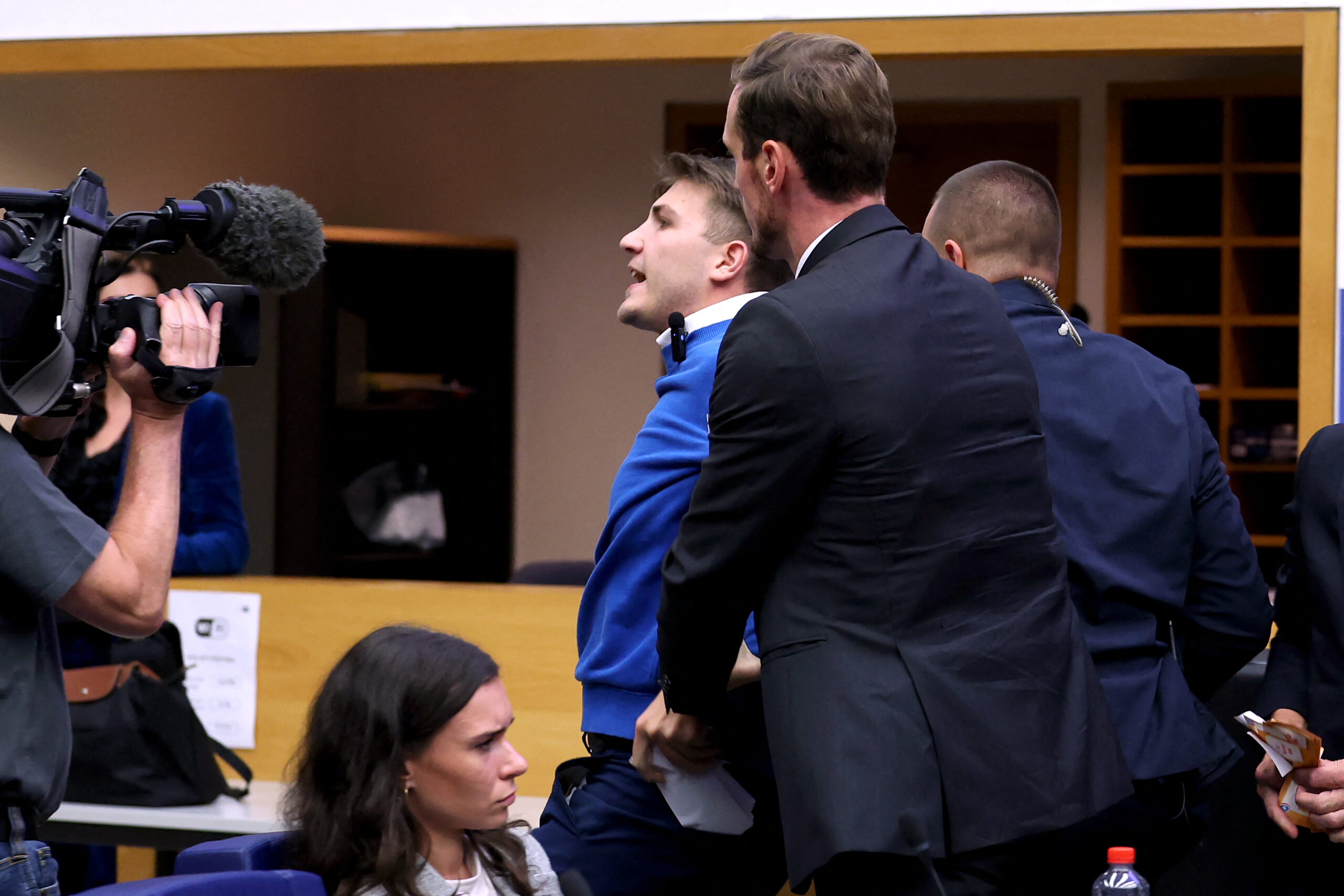From the correspondent in Strasbourg – A two-hour press conference to set the stage for his speech tomorrow (Oct. 9) before the EU Parliament in a debate that promises to be fiery. Viktor Orbán has outlined the direction of the Hungarian presidency of the EU Council, which completely derails from the one outlined so far by Brussels: Immediate negotiations with Putin for peace in Ukraine, rejection of the common policy on migration and accusing the European bubble elite of leaving out of the power games the sovereignist forces, which are on the rise in half of Europe.
The press briefing lacked nothing, not even the break-in of a young Hungarian activist who threw fake bills at the Magyar premier, accusing him of receiving resources directly from Putin and Xi Jinping, before being vigorously escorted out of the courtroom by security. Journalists have pressed Budapest’s strongman, almost always succeeding in doing what he does best: relaunching himself in an attempt to depict himself as the leader of a small country and a cross-community of voters who is systematically censured “by the elite” in Brussels.

First, the snapshot of the current situation in the EU: “very serious” because there is “a war in Europe” and “heavy conflicts in the Middle East and Africa whose consequences we feel.” And because—although the numbers of irregular entries into the EU in 2024 tell a different story—”the migration crisis has reached dimensions never seen before.” The picture closes with the node of European competitiveness in free fall. “It is not the Hungarian presidency saying this, but Mario Draghi,” Orbán pointed out.
Budapest, which holds the six-month leadership of the member countries in the EU Council, then proposes to ride his high horses: tougher punch on migration and reestablishing diplomatic channels with Moscow to end the wearisome war in Ukraine. For Orbán, the key word is “external hotspots,” return centres outside EU borders, because “those who want to enter must stop at the border until they have received an answer.” The slogan in full sovereignist style is done: “The only migrant who does not stay here is the one who cannot enter.” So much for those who claim the systematic violations of human rights in transit countries, such as Libya and Tunisia.
On Ukraine, Budapest intends “to focus on a ceasefire as soon as possible,” as well demonstrated by Orbán’s summer visits to Kyiv, Moscow, and Beijing. And in Florida, Donald Trump: if reelected president of the United States, “we will open several bottles of champagne” because he will “act immediately for peace in Ukraine.” After his talks with Putin and Xi Jinping, Orbán presented some proposals to the EU heads of state and government, “but unfortunately no one was interested.”
According to the pro-Russian premier, Zelensky is “convinced that time is on his side” and is “unwilling to negotiate” with Putin. The Twenty-seven should then “create the context” to prompt Kyiv to engage in negotiations. If Orbán meant to call military support for Ukraine into question, the Hungarian prime minister was careful not to let it be known. “Those who want to continue to provide the weapons go ahead,” he glossed over.
Orbán’s attack on Brussels elite: “It will find itself in the minority”
With remarkable skill, Orbán moved from Ukraine to a frontal attack on European institutions and the political establishment in Brussels. “We think we have a moral majority, but the majority of the world thinks otherwise and wants a ceasefire,” he said. Including European citizens who “do not agree with the war, migration, the economic policy of the EU.” But there is an “elite, consisting of the left, the liberals and the centre-right” who remain entrenched in their ivory towers, “surrounded by a protective ring.” And which—Orbán warns—”will find itself in the minority.”
Thus, in an unbelievable pirandellian play of the parts, the euroskeptic Orbán, who a few days ago in Pontida was inciting Lega fans to “occupy Brussels,” ends up preaching “calm and common sense.” Because “it is unacceptable” that his political group, the Patriots for Europe, is excluded from the majority that guides the political choices of the EU, in the European Parliament as well as in the Commission headed by Ursula von der Leyen. “In Hungary,” Orbán concluded, “it has never happened that the third largest party does not receive the competencies it is entitled to. In that Hungary that so many times Orbán himself has called “illiberal democracy.”
English version by the Translation Service of Withub









